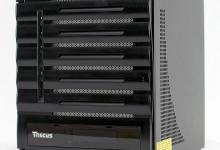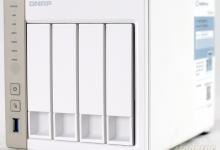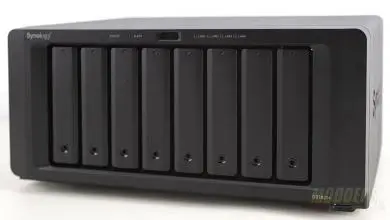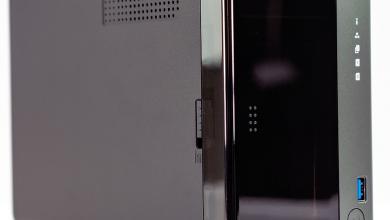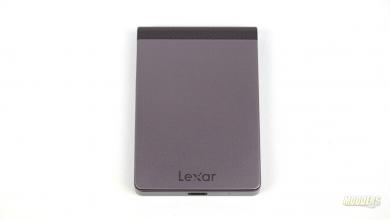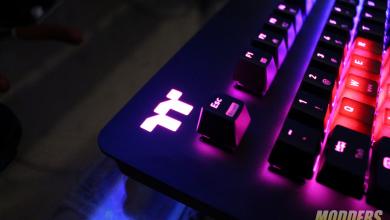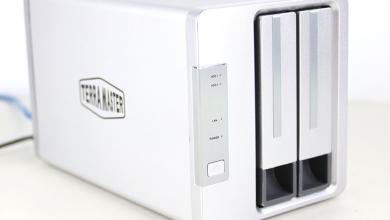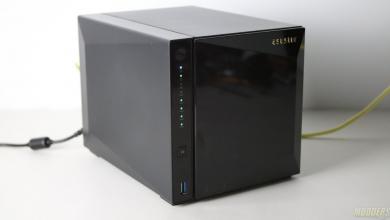TerraMaster F2-220 Review: Network Attached Storage at Affordable Price
Testing Methodology
| System Configuration | |
| Case | Cooler Master Cosmos II |
| CPU | AMD FX-8370E |
| Motherboard | ASRock 990FX Killer |
| Ram | 2 GB G.Skill F3-12800CL9q DDR3-1600 |
| GPU | Gigabyte Radeon R9 290 |
| Hard Drives | Samsung 850 EVO 256gb SSD |
| Network Cards | Dual Port Intel Pro/1000 PT |
| Switches | ALLIED TELESYN AT-9924T ADVANCED LAYER 3+ GIGABIT 24-PORT NETWORK SWITCH, Boot (2.6.6-02) Cat6E cables used for network testing. |
| Power Supply | Cooler Master Silent Pro Gold 1200W |
2 Seagate 4 TB 7200 RPM desktop drives were installed and used in the NAS tests.
A dual port Intel network card was installed in the test system.
F2-220 was used with Raid 0 and Raid 1 configurations.
Network Layout
For all tests the NAS was configured to use the a single network interface. One CAT 6 cable was connected to the Allied Telesis AT-9924T from the NAS and one CAT 6 cable was connected to the workstation from the switch. Testing was done on the PC with only 1 network card active; the Killer network card and the corresponding software were disabled for the testing. The switch was cleared of any configuration and left in a un-configured state. Jumbo frames was not enabled and no changes to the network interfaces was made.
Software
All testing is done based off of a single client accessing the NAS.
To test NAS Performance I used The Intel NAS Performance toolkit.
The Intel NAS Performance toolkit simulates various tasks for storage devices such as video streaming, copying files and folders to and from the NAS as well as creating content directly on the NAS. To limit caching, a 2GB G.Skill memory module was used in all tests. All options in the Performance toolkit were left that the defaults. The NAS performance test is free to download. You can pick up a copy for yourself here.
All tests were run a total of three times then averaged to get the final result.
